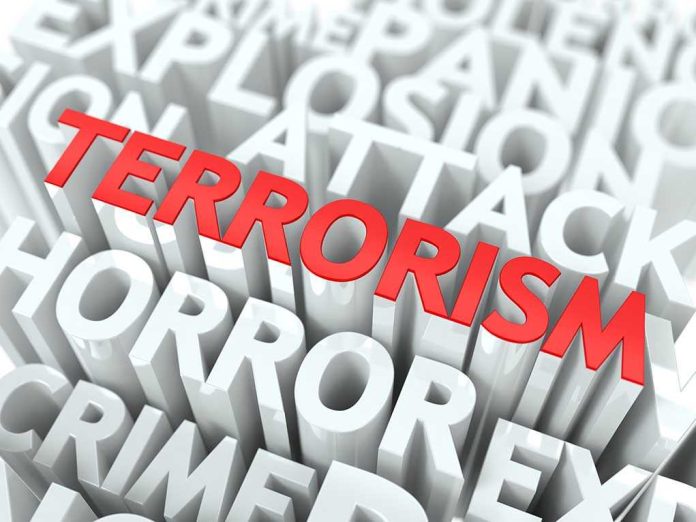
A controversial decision has reignited the debate over the scope of terrorism laws, potentially undermining public safety.
Story Highlights
- Judge dismisses state terrorism charges against Luigi Mangione, citing legal insufficiency.
- The decision questions the application of terrorism statutes in non-traditional cases.
- High-profile murder case continues with other serious charges, including second-degree murder.
- Public and media scrutiny intensifies over prosecutorial discretion and legal definitions.
Judge Dismisses Terrorism Charges in High-Profile Case
Judge Gregory Carro’s decision to dismiss state terrorism charges against Luigi Mangione has sparked significant debate. Mangione, who is accused of murdering UnitedHealthcare CEO Brian Thompson in December 2024, was initially charged with state terrorism. However, on September 16, 2025, those charges were ruled legally insufficient. This ruling has brought to light the challenges of applying terrorism statutes to cases outside the traditional realm of political or ideologically motivated violence.
The case has drawn attention due to its unique intersection of state and federal prosecutions. Manhattan DA Alvin Bragg’s office argued that the act intended to intimidate or coerce a civilian population, a claim the defense refuted due to a lack of evidence of political or ideological motive. The court’s dismissal of these charges emphasizes the necessity for rigorous legal standards when applying terrorism statutes, particularly in non-traditional contexts.
Implications of the Ruling
Without the terrorism charges, Mangione still faces serious accusations, including second-degree murder and weapons offenses. These charges will proceed to trial, with hearings on evidence suppression scheduled for December 1, 2025. This development has heightened scrutiny on DA Bragg’s prosecutorial strategy, as he continues to pursue high-profile cases with complex legal implications.
The broader implications of this case may influence future prosecutorial decisions not only in New York but potentially across other jurisdictions. Legal experts argue that this dismissal could set a precedent for limiting the use of terrorism charges in similar cases, prompting a reevaluation of what constitutes terrorism under state law.
Public Reaction and Legal Debate
The dismissal has provoked diverse reactions from the public and legal community. Some view this as a necessary check on prosecutorial overreach, while others fear it may weaken public safety measures. Civil liberties advocates warn against the overuse of terrorism statutes, suggesting that such applications dilute their intended purpose and undermine public trust.
As the case continues, it underscores the ongoing debate over prosecutorial discretion and statutory interpretation. The outcome could significantly impact how terrorism laws are applied in the future, potentially reshaping the legal landscape in cases of non-traditional violence.














